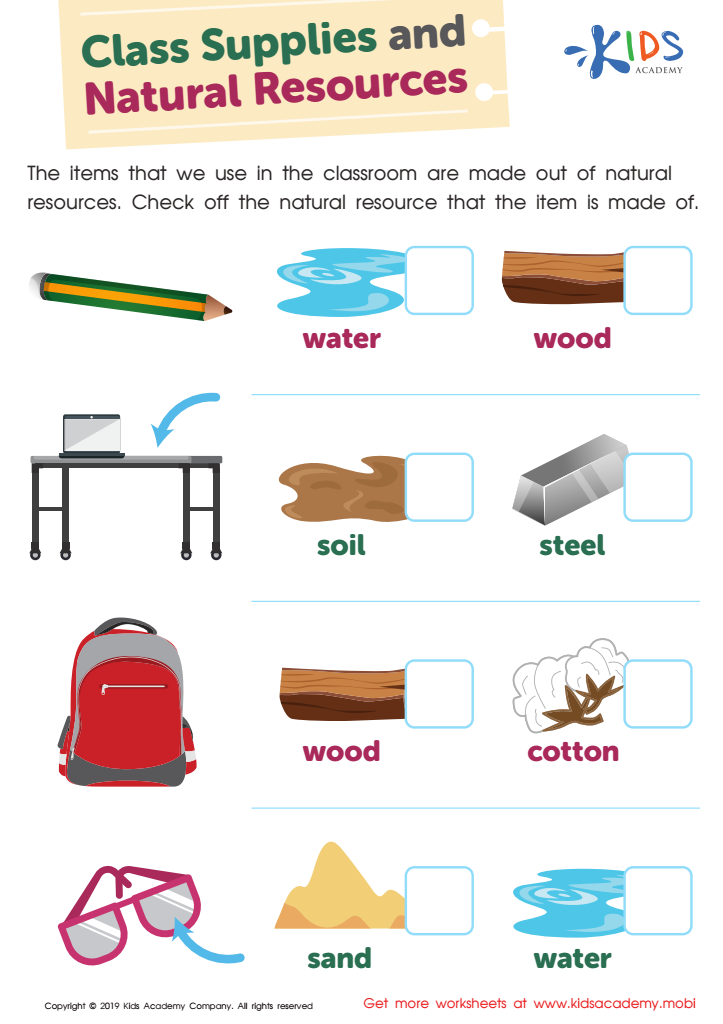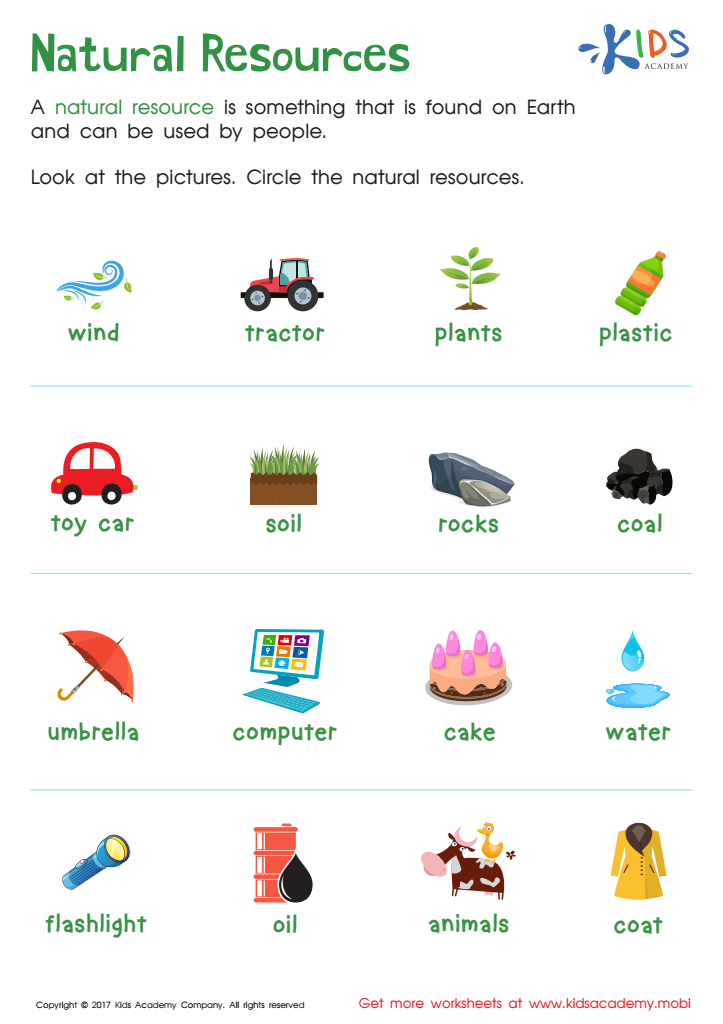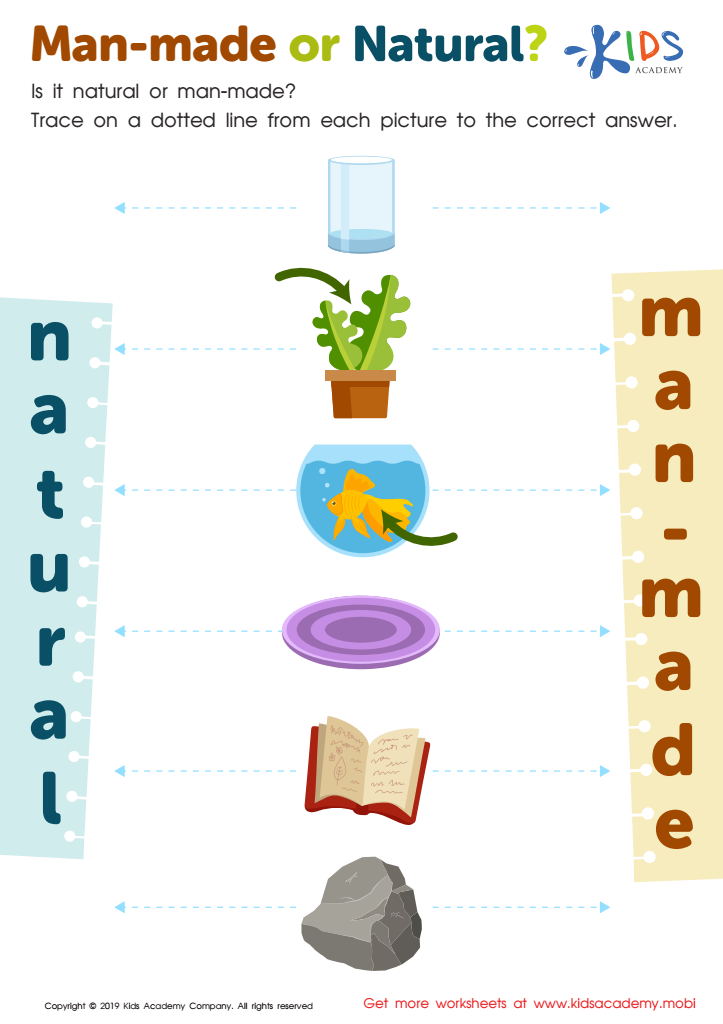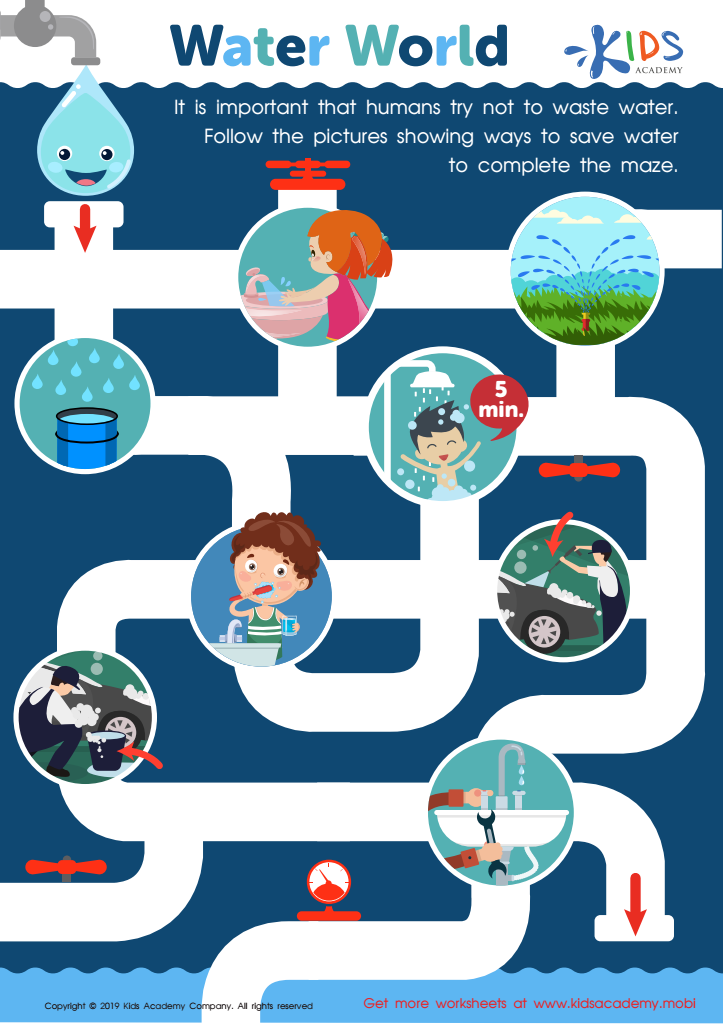K-ESS3-1 K.Relationships in Ecosystems worksheets With Answers for Kindergarten
4 filtered results
-
From - To
Explore our engaging "K-ESS3-1 K. Relationships in Ecosystems Worksheets" designed for kindergarten students! These educational worksheets help young learners understand how living things interact with their environment. Perfect for educators and parents, each worksheet is aligned with the Next Generation Science Standards (NGSS) and includes an answer key to facilitate easy grading. Students will enjoy hands-on activities that promote critical thinking and observation skills as they learn about ecosystems and relationships between organisms. Download now to make science fun and interactive in your classroom! Foster a love for nature and curious minds in your little ones today!


Class Supplies and Natural Resources Worksheet


Natural Resources Worksheet


Man-Made or Natural? Worksheet


Water World Worksheet
K-ESS3-1 emphasizes the importance of understanding relationships in ecosystems, which is fundamental to fostering environmental literacy among young learners. By focusing on this standard, parents and teachers can encourage children to observe and appreciate the interconnectedness of living organisms and their environments.
Caring about this standard helps children recognize their role in nature. For instance, by learning how plants and animals depend on one another, children can develop an early sense of responsibility towards conserving their surroundings. It also paves the way for critical thinking, allowing them to grasp complex ideas about ecosystems as they move into higher grades.
Additionally, instilling this knowledge at a young age promotes curiosity and a love for exploration. Outdoor activities, such as nature walks, encourage hands-on learning where children can observe real-world examples of ecosystems. Engaging storytelling and interactive lessons can reinforce these relationships, linking them to children's daily experiences.
In summary, focusing on K-ESS3-1 helps build a foundational understanding of environmental systems, fosters critical thinking, and nurtures responsible behaviors toward ecological conservation—essential skills in an increasingly eco-conscious world. Thus, parents and teachers play a crucial role in shaping future stewards of the planet.
 Assign to My Students
Assign to My Students















